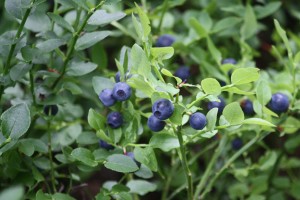Vaccinium myrtillus is a species of shrub with edible fruit of blue color, commonly called “bilberry”, “whortleberry” or European blueberry.
Contents
Uses
Bilberry fruit has been used for diarrhea, for soothing the mouth and throat, and for improving vision.
Some herbal/dietary supplement products have been found to contain possibly harmful impurities/additives. Check with your pharmacist for more details about the brand you use.
Benefits
One of the alleged benefits of this herb is the ability to enhance the vision. During World War II, fighter pilots would consume the berries to improve their night vision.
The herb is thought to play a significant role in the prevention of many common eye diseases and has become very popular today as a medicinal herb to help resolve eyestrain or fatigue, and night blindness.
Because it contains anthocyanin and vitamins A and C, it operates as a natural antioxidant, lowering blood pressure naturally, reducing clotting and improving blood supply to the nervous system.
Bilberries can be used as a supportive treatment for diabetes, both because the berries reduce blood sugar and because they can prevent eye diseases and blood vessel disorders that can accompany diabetes. It’s probably due to the flavonoid quercetin which is the main active ingredient in the herb. Quercetin inhibits an enzyme called aldose reductase. This enzyme is normally found in the eye and several other body parts and converts sorbitol to glucosel. If the sorbitol levels become too high in the eyes or nerves, they can cause retinopathy (disease of the retina) and nerve damage. Many people with diabetes use an aldose reductase inhibitor to prevent eye problems related to the disease.
It’s used to help address vascular and blood disorders, varicose veins, thrombosis, hemorrhoids and as an herbal treatment for angina. It can also help to prevent capillary fragility and thin the blood.
Due to the berries’ high tannins and pectin content they’re used to regulate bowel movements. Taken in small amounts the dried berries can be use as an herbal remedy for diarrhea while intake of large quantities of the fresh berries can cause loose stools.
Bilberry is also recommended for nausea and indigestion. Sometimes it will be used as a treatment for mild inflammation of the mucous membranes in the mouth and throat.
It could be effective as an herbal treatments for cancers (certain types). It has been shown to inhibit the growth of colon cancer cells in vitro. This could be attributed to the antioxidant flavonoid anthocyanin, but more research is needed. Bilberry is used traditionally as a natural remedy for kidney stones, scurvy and urinary infections.
Caution
A very serious allergic reaction to this product is rare. However, seek immediate medical attention if you notice any of the following symptoms of a serious allergic reaction: rash, itching/swelling (especially of the face/tongue/throat), severedizziness, trouble breathing.
Interactions
None are recorded.
Other names
Huckleberry, whortleberries, blueberry, European blueberry, bog berry, hurtle berry, blåbär (Swedish), Heidelbeere (German), petit myrte (Frence).
Reference
Source: HerbalSupplementResource, http://www.herbal-supplement-resource.com/bilberry-herb.html
WebMD, http://www.webmd.com/drugs/2/drug-17307/bilberry-vaccinium-myrtillus-oral/details
Wikipedia, https://en.wikipedia.org/wiki/Vaccinium_myrtillus

